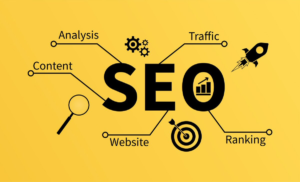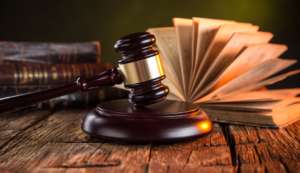SEO should be a core component of every brand’s digital marketing strategy. It’s a valuable way to understand your audience and reach them with content that addresses their biggest questions.
SEO improves a website’s visibility to get more visitors from search engines like Google. It requires thorough keyword research and quality content. Contact Rank Boss now!

Getting your on-page SEO ducks in a row is essential to improving your overall search engine rankings and user experience. This process includes optimizing title tags, meta descriptions, and internal links, among other things. The best on-page optimization practices ensure that your content is relevant to the search terms you are targeting, but without resorting to keyword stuffing (which can damage your ranking).
The first step of on-page SEO is conducting keyword research to find out what people are searching for in your niche. This research will help you develop a list of keywords and phrases that will be most effective at driving traffic to your site.
Once you have your list of keywords, you should then use them throughout your website. It is important to keep in mind that keywords should be incorporated naturally into your content. If you try to incorporate too many keywords, it may appear unnatural to the search engines and lead to a penalty. In addition, be sure to use long-tail keywords where appropriate, as they are more specific and will give you better results.
A good title tag should include your main keyword, as well as a call to action. It should also be unique and informative. It should be 155 characters or less in length to avoid being truncated on SERPs for desktop and mobile searches. Similarly, your meta description should be unique and informative. It should explain what the page is about and why it should be clicked on. It is also important to optimize your URLs. Make sure they are clear and contain your keyword, and avoid including things like dates or numbers in the URL.
Another on-page optimization tip is to utilize header tags to organize your content. These tags, which are h1>, h2>, and h3>, help Google crawl your page and rank it for its topic. You should also include keywords in your headings, but be careful not to overdo it. Doing so can be viewed as spam and cause your page to be penalized by the search engines.
Off-page optimization
Off-page optimization is a crucial component of SEO. It signals to search engines that a website is important and authoritative in its industry. It also helps them determine how useful the page is to users. Off-page SEO can be influenced by several factors, including backlinks and social media shares. It is more difficult to control than on-page optimization, but it can still have a significant impact on rankings.
Backlinks are one of the most common off-page SEO tactics, and they can have a huge influence on SERPs. According to a study by Backlinko, the number of quality backlinks a site has correlates with its Google ranking. In addition, a high number of backlinks can increase a website’s authority and relevance in its industry.
A well-optimized off-page SEO strategy includes link building, content marketing, and reputation management. These strategies all work together to boost a website’s domain authority. These off-page SEO practices can also improve a website’s organic traffic and visibility. However, it is essential to implement on-page optimization best practices before focusing on off-page SEO.
There are many off-page SEO strategies, and each one has its own benefits. For example, posting on forums can boost your SEO by boosting brand awareness and showcasing your expertise. It can also help you find potential customers and answer their questions.
Another off-page SEO technique is guest posting. This involves writing an article for a reputable site in your industry to get a link back to your website. It is important to choose a relevant niche and a trustworthy website to ensure that your article will be read. It is also a good idea to focus on the strategies that you are most comfortable with. For instance, if you are an expert in software, then writing guest posts for popular websites in your industry is a good way to build up your authority and boost your ranking.
Off-page optimization is an ongoing process, and it takes time to see results. But if you keep working on it, you’ll eventually see your website ranking higher in the search results. This is because off-page SEO builds your domain authority over time. It’s like a bathtub with rubber duckies in it: once you add water, the duckies rise to the top.
Link building
Link building is a key component of any SEO strategy. It involves constructing a network of links across your pages to demonstrate your expertise in a given field to search engines. It also helps search engines understand how your pages relate to one another, which is important for determining relevance. This is why it is so important to build high-quality, relevant links.
A well-executed link building campaign can help you improve your rankings and drive organic traffic to your website. However, it is important to remember that links are just one part of a holistic marketing campaign. In order to get the most out of your link building efforts, you should focus on creating great content and promoting it on social media. In addition, you should always consider the needs of your audience when building links.
One of the best ways to increase your domain authority is to build links from websites that have a similar topic and audience as yours. You can do this by contacting authors of these sites and asking them for a link. Another way to build links is by creating resource pages on your site, which contain useful information and links. These pages are usually built around specific keywords and can rank in organic search results.
You can find the number of incoming links to your website in your Google Analytics account under “Referral Traffic.” The more incoming links you have, the higher your SEO ranking will be. You can also use the “Backlinks” report in Moz to see which websites are linking back to you.
Having a strong link profile is essential for SEO, but you should never attempt to manipulate search engines with black-hat techniques. These tactics can be incredibly risky, and you could be hit with a manual penalty from Google if you get caught using them. In addition to being a risky tactic, black-hat techniques are less effective and can hurt your ranking. They can also damage your brand reputation and lead to a loss of trust in your customers. To avoid a Google penalty, be sure to have a clean link profile and follow the guidelines in Google’s Webmaster Tools.
Multimedia
Multimedia is the integration of various content formats such as text, images, audio, and video in a digital format. It has revolutionized the way we convey information and entertainment, making it more engaging and interactive. This technology can be used in various contexts, from websites and mobile apps to video games and virtual reality experiences. It also makes it possible to create personalized and customized experiences for users.
Multimedia has many benefits, including improved information retention. Research has shown that people are more likely to remember information presented in a combination of visuals and sound, compared to text alone. It also allows for better communication of complex concepts. It can also make learning more fun and enjoyable, and is accessible to a wider range of audiences.
In addition to its educational value, multimedia is an effective tool for marketing. It can help businesses attract more traffic and convert them into customers by creating a more compelling brand image and increasing the level of interaction with the brand. It can also be used to build customer trust and loyalty by promoting a more authentic, human side of the business.
Search engine optimization (SEO) and search engine marketing (SEM) are two different techniques for improving the visibility of a website in the organic or unpaid results of a search engine. While SEO focuses on optimizing the site’s content to rank higher in organic searches, SEM involves paying for ads to appear above and below the organic results. These paid ads can be very expensive and can be a great way to generate traffic, but they are not a long-term solution for businesses.
Multimedia is widely used in the entertainment industry, particularly in film and television. It is also used to create more immersive and engaging experiences for visitors to museums and cultural heritage sites. For example, some museums are experimenting with interactive, multi-sensory exhibitions that use the latest technology to create more immersive and engaging experiences for their visitors. These experiences are becoming increasingly popular, especially among young people. In the future, multimedia may become more common in all areas of life, from education to medicine.





